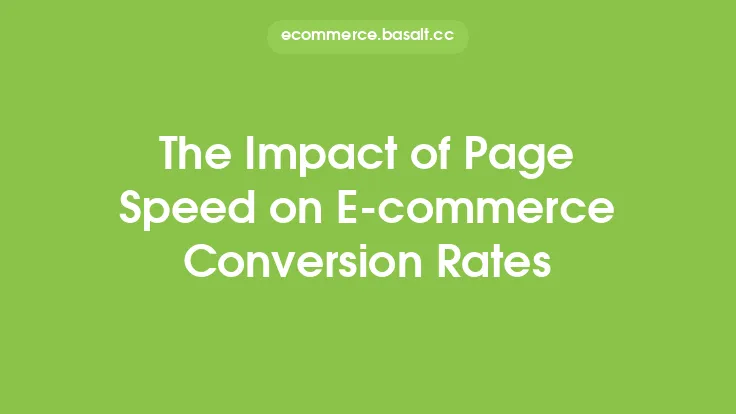The rise of digital transformation has revolutionized the way e-commerce businesses operate, interact with customers, and drive sales. At its core, digital transformation refers to the integration of digital technology into all areas of a business, resulting in a fundamental change in how it operates and delivers value to customers. In the context of e-commerce, digital transformation has enabled businesses to leverage digital channels, data analytics, and emerging technologies to create seamless, personalized, and omnichannel shopping experiences.
Key Drivers of Digital Transformation in E-commerce
Several key drivers are fueling the adoption of digital transformation in e-commerce. Firstly, the proliferation of digital channels, such as social media, mobile devices, and online marketplaces, has created new opportunities for businesses to reach and engage with customers. Secondly, the increasing availability of data and analytics has enabled businesses to gain deeper insights into customer behavior, preferences, and purchasing patterns. Finally, the emergence of new technologies, such as artificial intelligence, blockchain, and the Internet of Things (IoT), has opened up new possibilities for innovation and disruption in the e-commerce space.
Benefits of Digital Transformation for E-commerce Businesses
The benefits of digital transformation for e-commerce businesses are numerous and significant. Firstly, digital transformation enables businesses to create personalized and seamless shopping experiences, which can lead to increased customer satisfaction, loyalty, and retention. Secondly, digital transformation can help businesses to streamline their operations, reduce costs, and improve efficiency, resulting in increased productivity and competitiveness. Finally, digital transformation can provide businesses with real-time insights and data analytics, enabling them to make informed decisions, identify new opportunities, and stay ahead of the competition.
Challenges and Opportunities of Digital Transformation
While digital transformation offers many benefits, it also presents several challenges and opportunities for e-commerce businesses. One of the main challenges is the need for significant investment in new technologies, infrastructure, and talent, which can be costly and time-consuming. Additionally, digital transformation requires businesses to adapt to new ways of working, which can be difficult for some organizations. However, for businesses that are able to successfully navigate these challenges, digital transformation can create new opportunities for growth, innovation, and disruption.
Strategies for Implementing Digital Transformation
To implement digital transformation successfully, e-commerce businesses need to develop a clear strategy that aligns with their overall business goals and objectives. Firstly, businesses need to define their digital vision and roadmap, which should include a clear understanding of their target audience, customer needs, and competitive landscape. Secondly, businesses need to invest in new technologies and infrastructure, such as e-commerce platforms, data analytics tools, and digital marketing software. Finally, businesses need to develop a culture of innovation and experimentation, which encourages employees to think creatively, take risks, and embrace new ideas and technologies.
Role of Emerging Technologies in Digital Transformation
Emerging technologies, such as artificial intelligence, blockchain, and the IoT, are playing a significant role in driving digital transformation in e-commerce. For example, AI-powered chatbots and virtual assistants are being used to provide personalized customer service, while blockchain is being used to create secure and transparent supply chains. Additionally, the IoT is being used to create smart and connected products, which can provide businesses with real-time insights and data analytics. As these technologies continue to evolve and mature, they are likely to have an even greater impact on the e-commerce industry, enabling businesses to create new and innovative shopping experiences.
Measuring the Success of Digital Transformation
To measure the success of digital transformation, e-commerce businesses need to establish clear key performance indicators (KPIs) and metrics. These may include metrics such as website traffic, conversion rates, customer satisfaction, and revenue growth. Additionally, businesses need to use data analytics tools to track and analyze customer behavior, preferences, and purchasing patterns. By using these metrics and tools, businesses can gain a deeper understanding of the impact of digital transformation on their operations and make informed decisions about future investments and initiatives.
Future of Digital Transformation in E-commerce
The future of digital transformation in e-commerce is likely to be shaped by several key trends and technologies. Firstly, the increasing use of AI and machine learning is likely to enable businesses to create even more personalized and seamless shopping experiences. Secondly, the growth of the IoT is likely to create new opportunities for innovation and disruption in the e-commerce space. Finally, the increasing importance of data analytics and insights is likely to enable businesses to make even more informed decisions about their operations and investments. As the e-commerce industry continues to evolve and mature, digital transformation is likely to play an even greater role in shaping the future of the industry.





